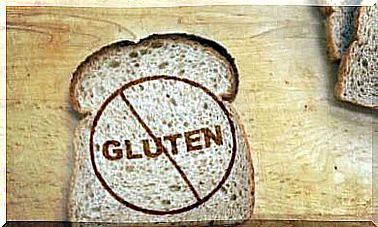Weight Gain: Are Hormones Always To Blame?
If the thyroid is out of balance, its hormones can cause weight changes.

Those who gain weight quickly blame hormones for it. But which hormones can actually be “to blame” for the weight gain ? Are you totally “at the mercy” of hormones or are there any methods you can use to keep your weight off?
Which hormones are responsible for weight gain ?
Many processes in our body, including those of the metabolism, are controlled by hormones.
Some of them also influence whether we gain or lose weight. However, a popular saying “it’s the hormones to blame” is rarely the sole truth of weight gain.
Anyone who suspects that the hormones are to blame for weight changes belongs in the hands of a doctor to rule out further complications!
If the doctor does not find any changes in the hormonal balance, it is time to take a deep breath! Because it is always easier to pay attention to your diet than to suffer from a disease that interferes with the hormonal balance!
The following hormones increase weight, among others:
- Too much estrogens increase appetite and lead to water retention.
- A deficiency in the thyroid hormones triiodothyronine and thyroxine slows down the metabolism.
- Those who produce too many steroids (e.g. cortisol) gain weight.
Reasons for an unsuitable amount can be: Unsuitable contraceptives (“pill”), hypothyroidism, kidney tumors. But also the thyroid or pituitary gland, disease of the adrenal cortex and more can be to blame.

How do you find out if your hormones are “crazy”?
If you suspect that it is your hormones and not your eating habits that are responsible for weight gain, you should keep a close journal.
On the one hand you list every tiny calorie you have consumed, on the other hand you note how your weight is developing. To do this, always weigh yourself at the same time every day, preferably on an empty stomach.
With the diary you can, if you are honest, uncover even the smallest “hidden sins”. You control your eating behavior and at the same time offer your doctor a good basis to support his diagnosis.
If you gain weight for some inexplicable reason despite unchanged eating habits, urgently visit a doctor!

What if it’s not the hormones?
For example, there is a persistent rumor that when you go through menopause, you gain weight almost “automatically” because “the hormones go crazy”.
Menopause is certainly a time of hormonal change. Weight gains in this phase of life are due to the changed lifestyle and not to the hormones.
Think about what has changed in your lifestyle and eating style compared to the phase in your life in which you had a healthy body weight.
You probably move less or less intensely, cook differently. You have developed new drinking habits or adopted new eating habits.
Even if your doctor couldn’t determine a change in your hormone status, you should still keep a food diary and take it to a certified nutritionist.
They are happy about your notes and can use them to tailor their advice to you.
Make sure that a really good nutritionist does not sell “powders” and that he ideally cooperates with health insurance companies – also with regard to (partial) assumption of the costs!
If your diet is perfect, you get enough exercise, your lifestyle is active and healthy, and your doctor hasn’t noticed any change in hormone levels, what else could it be? Do you take medicine?

Drugs that increase weight
There are, of course, medications that can cause your weight to increase on the scales.
Regardless of whether the weight gain is caused by fat or water retention: The counter on the scale tends to climb up if you take the following medication:
- Antidepressants
- Hormonal contraceptives
- cortisone
- insulin
- Psychotropic drugs
- Beta blockers
- Epilepsy drugs
If you suspect that your body weight is increasing due to medication, please never dose them differently or even stop them!
In particular, drugs that affect your cardiovascular system (for example beta blockers for high blood pressure) are more important than your desired weight!
Visit your doctor and explain your problem to him, he may change the dose, try an alternative or know other methods to get your body weight under control despite taking important medication!
However, there are always two sides to successful weight management. One side explains to you why it is and what you should do, the other side, that’s you – and ultimately the one who puts the food in their own mouth.
Take responsibility for your body weight and do not blame weight gain on the hormones!









